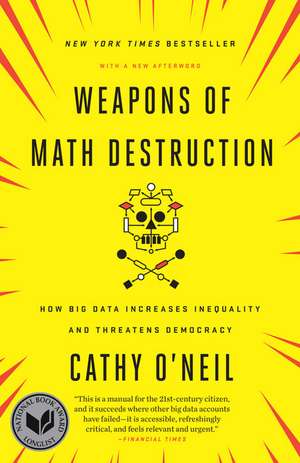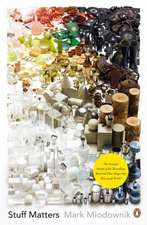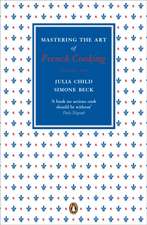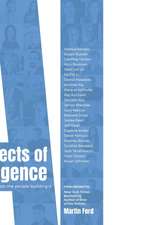Weapons of Math Destruction
Autor Cathy O'Neilen Limba Engleză Paperback – 5 sep 2017
'Fascinating and deeply disturbing' - Yuval Noah Harari,Guardian Books of the Year
'A manual for the 21st-century citizen... accessible, refreshingly critical, relevant and urgent' - Federica Cocco,Financial Times
A former Wall Street quant sounds an alarm on the mathematical models that pervade modern life - and threaten to rip apart our social fabric
We live in the age of the algorithm. Increasingly, the decisions that affect our lives - where we go to school, whether we get a loan, how much we pay for insurance - are being made not by humans, but by mathematical models. In theory, this should lead to greater fairness: everyone is judged according to the same rules, and bias is eliminated.
And yet, as Cathy O'Neil reveals in this urgent and necessary book, the opposite is true. The models being used today are opaque, unregulated, and incontestable, even when they're wrong. Most troubling, they reinforce discrimination. Tracing the arc of a person's life, O'Neil exposes the black box models that shape our future, both as individuals and as a society. These "weapons of math destruction" score teachers and students, sort CVs, grant or deny loans, evaluate workers, target voters, and monitor our health.
O'Neil calls on modellers to take more responsibility for their algorithms and on policy makers to regulate their use. But in the end, it's up to us to become more savvy about the models that govern our lives. This important book empowers us to ask the tough questions, uncover the truth, and demand change.
| Toate formatele și edițiile | Preț | Express |
|---|---|---|
| Paperback (2) | 57.87 lei 23-34 zile | +19.96 lei 6-10 zile |
| Penguin Books – 5 iul 2017 | 57.87 lei 23-34 zile | +19.96 lei 6-10 zile |
| Random House LLC US – 5 sep 2017 | 74.62 lei 3-5 săpt. | +8.98 lei 6-10 zile |
Preț: 74.62 lei
Nou
14.28€ • 15.51$ • 11.100£
Carte disponibilă
Livrare economică 02-16 aprilie
Livrare express 18-22 martie pentru 18.97 lei
Specificații
ISBN-10: 0553418831
Pagini: 288
Dimensiuni: 131 x 202 x 20 mm
Greutate: 0.2 kg
Editura: Random House LLC US
Colecția Broadway Books
Notă biografică
Recenzii
This is a manual for the 21st-century citizen, and it succeeds where other big data accounts have failed - it is accessible, refreshingly critical and feels relevant and urgent
Well-written, entertaining and very valuable
O'Neil has become a whistle-blower for the world of Big Data... Her work makes particularly disturbing points about how being on the wrong side of an algorithmic decision can snowball in incredibly destructive ways
Cathy O'Neil has seen Big Data from the inside, and the picture isn't pretty.Weapons of Math Destructionopens the curtain on algorithms that exploit people and distort the truth while posing as neutral mathematical tools. This book is wise, fierce, and desperately necessary
Weapons of Math Destructionis a fantastic, plainspoken call to arms. Cathy O'Neil's book is important precisely because she believes in data science. It's a vital crash course in why we must interrogate the systems around us and demand better
Often we don't even know where to look for those important algorithms, because by definition the most dangerous ones are also the most secretive. That's why the catalogue of case studies in O'Neil's book are so important; she's telling us where to look
In today's world, if you want to change your fate you've got to pray at the altar of the algorithm... As math guru Cathy O'Neil argues in her newest book, these models are just the latest way America's institutions perpetuate bias and prejudice to reward the rich and keep the poor, well, poor. It's a nuanced reminder that big data is only as good as the people wielding it
Not math heavy, but written in an exceedingly accessible, almost literary style; her fascinating case studies of WMDs fit neatly into the genre of dystopian literature. There's a little Philip K. Dick, a little Orwell, a little Kafka in her portrait of powerful bureaucracies ceding control of the most intimate decisions of our lives to hyper-empowered computer models riddled with all of our unresolved, atavistic human biases
Textul de pe ultima copertă
'A manual for the 21st-century citizen ... accessible, refreshingly critical, relevant and urgent' Federica Cocco, Financial Times
'O'Neil's book offers a frightening look at how algorithms are increasingly regulating people ... masterly' Clay Shirky, The New York Times Book Review
'Opens the curtain on algorithms that exploit people and distort the truth while posing as neutral mathematical tools. This book is wise, fierce, and desperately necessary' Jordan Ellenberg, author of How Not to Be Wrong
'A vital crash course in why we must interrogate the systems around us and demand better' Cory Doctorow
'Cathy O'Neil has a story to tell, and it is a story about you ... what she reveals is fascinating' Danny Dorling, Times Higher Education
Descriere
New York Times Bestseller
'Fascinating and deeply disturbing' - Yuval Noah Harari, Guardian Books of the Year
'A manual for the 21st-century citizen... accessible, refreshingly critical, relevant and urgent' - Federica Cocco, Financial Times
A former Wall Street quant sounds an alarm on the mathematical models that pervade modern life - and threaten to rip apart our social fabric
We live in the age of the algorithm. Increasingly, the decisions that affect our lives - where we go to school, whether we get a loan, how much we pay for insurance - are being made not by humans, but by mathematical models. In theory, this should lead to greater fairness: everyone is judged according to the same rules, and bias is eliminated.
And yet, as Cathy O'Neil reveals in this urgent and necessary book, the opposite is true. The models being used today are opaque, unregulated, and incontestable, even when they're wrong. Most troubling, they reinforce discrimination. Tracing the arc of a person's life, O'Neil exposes the black box models that shape our future, both as individuals and as a society. These "weapons of math destruction" score teachers and students, sort CVs, grant or deny loans, evaluate workers, target voters, and monitor our health.
O'Neil calls on modellers to take more responsibility for their algorithms and on policy makers to regulate their use. But in the end, it's up to us to become more savvy about the models that govern our lives. This important book empowers us to ask the tough questions, uncover the truth, and demand change.

























